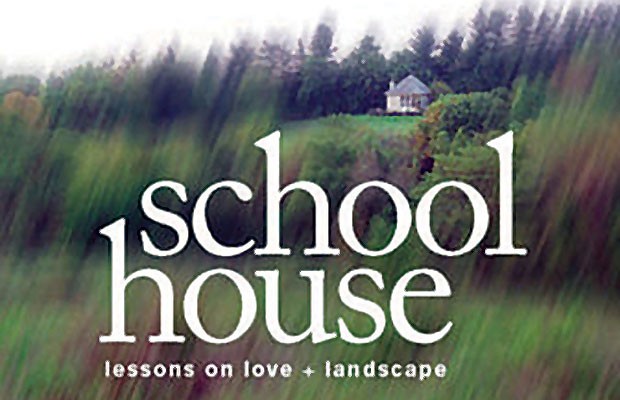Marc Nieson’s School House: Lessons on Love and Landscape
The memoir is admirably soul-searching but not well written

There is little in School House: Lessons on Love and Landscape (Ice Cube Press) that could be taken for lessons on writing. This is surprising, considering that the author, Marc Nieson, is a creative-writing professor at Chatham University. But School House reads like the first draft of an unedited book. Like it was spoken into a Dictaphone by a busy executive, then sent directly to the typesetter.
Nieson does something else extremely well, however. He opens himself to the reader, inviting a level of personal examination rarely offered in memoirs. Whether he is describing his morbid fascination with dead animals, or his fear of comforting a friend dying of AIDS, Nieson is courageous in his willingness to share the darkest elements of his soul. And for this he should be commended.
But the story itself, about the aftermath of a love affair with a woman named Sybil, hardly touches the reader. Primarily because Nieson fails to establish the passion of their relationship, which is briefly described, rather than shown. Thus we can’t become invested in his emotional pain, as he doesn’t build the limbic resonance necessary to justify it.
Instead, the storyline rushes forward inexplicably, then flashes back, then forward again, repeatedly — like a cat playing with the DVR remote.
Nieson leaves Manhattan to attend the Iowa Writers’ Workshop, and for the next 250 pages indulges in such relentless whining and self-recrimination about Sybil that he eventually asks himself, “Isn’t there a point where you finally grow disgusted with your own wallowing?” But it takes him 194 pages to do this. If only he had done it on page 10.
Perhaps most disconcerting is Nieson’s use of language. From the first sentence, “Sometimes it is like a dream,” the book is riddled with so many clichés and hackneyed phrases that we have to wonder: Where is his own voice?
Other problems abound. Words are often carelessly repeated in consecutive sentences or the same paragraph. The contorted syntax feels like the result of a beginner yoga class, not an advanced writing workshop. And Peter Piper would be jealous of the myriad gratuitous alliterations, like “panorama of my precious pond and pasture. …”
School House does provide some insightful lessons, however, which the author gleans from meditations on his grandfather’s suicide, and the eternal predator-prey life cycle that he observes in the Iowa woods. But the art of writing, unfortunately, is not one of them.
Nieson does something else extremely well, however. He opens himself to the reader, inviting a level of personal examination rarely offered in memoirs. Whether he is describing his morbid fascination with dead animals, or his fear of comforting a friend dying of AIDS, Nieson is courageous in his willingness to share the darkest elements of his soul. And for this he should be commended.
But the story itself, about the aftermath of a love affair with a woman named Sybil, hardly touches the reader. Primarily because Nieson fails to establish the passion of their relationship, which is briefly described, rather than shown. Thus we can’t become invested in his emotional pain, as he doesn’t build the limbic resonance necessary to justify it.
Instead, the storyline rushes forward inexplicably, then flashes back, then forward again, repeatedly — like a cat playing with the DVR remote.
Nieson leaves Manhattan to attend the Iowa Writers’ Workshop, and for the next 250 pages indulges in such relentless whining and self-recrimination about Sybil that he eventually asks himself, “Isn’t there a point where you finally grow disgusted with your own wallowing?” But it takes him 194 pages to do this. If only he had done it on page 10.
Perhaps most disconcerting is Nieson’s use of language. From the first sentence, “Sometimes it is like a dream,” the book is riddled with so many clichés and hackneyed phrases that we have to wonder: Where is his own voice?
Other problems abound. Words are often carelessly repeated in consecutive sentences or the same paragraph. The contorted syntax feels like the result of a beginner yoga class, not an advanced writing workshop. And Peter Piper would be jealous of the myriad gratuitous alliterations, like “panorama of my precious pond and pasture. …”
School House does provide some insightful lessons, however, which the author gleans from meditations on his grandfather’s suicide, and the eternal predator-prey life cycle that he observes in the Iowa woods. But the art of writing, unfortunately, is not one of them.

















